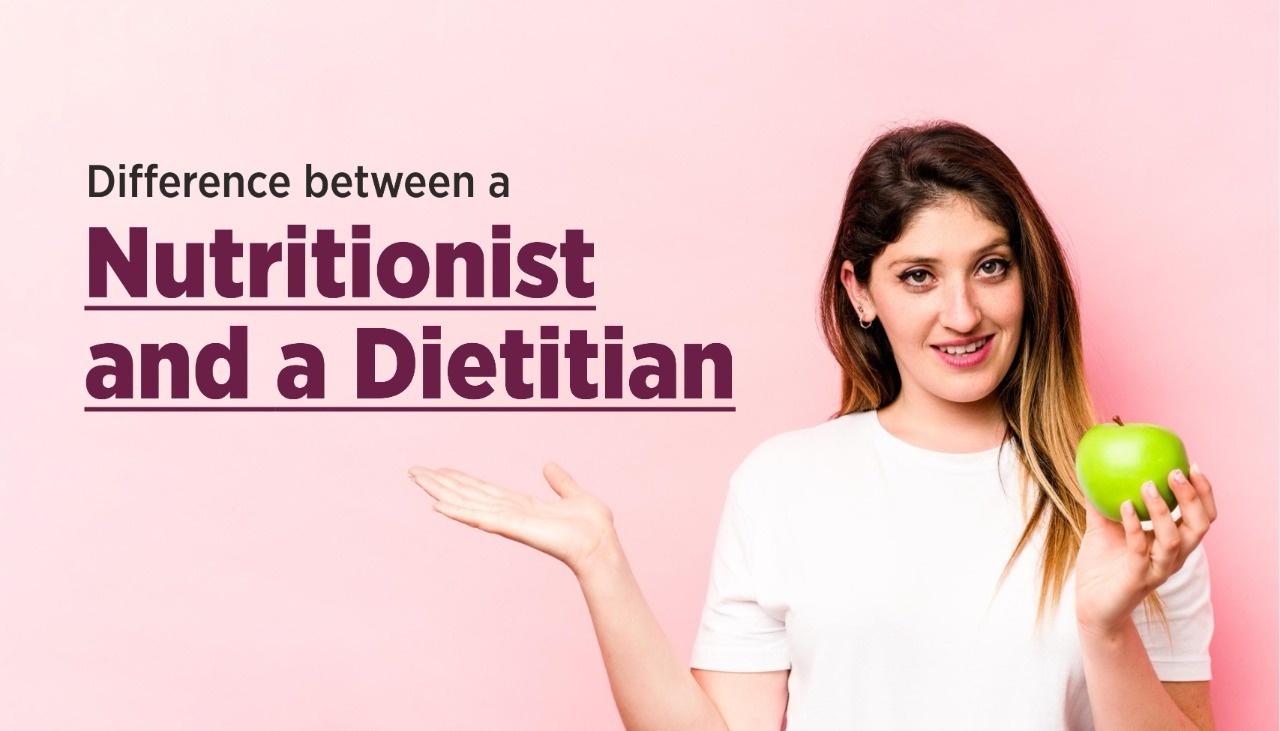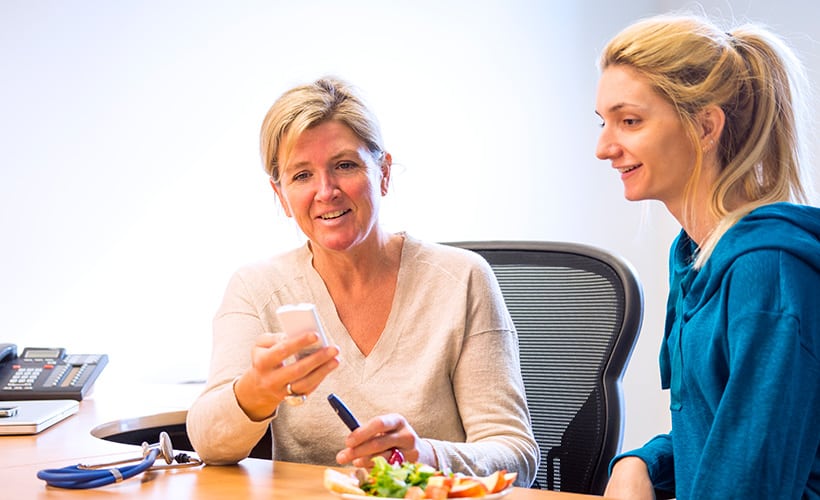All Categories
Featured
Table of Contents
The types of Nutritional experts are: and. The former are those individuals that make use of the clinical approach to study nutrients, both as individual compounds and as they connect in food and nourishment while the latter are experts that assist in detecting the nutritional problems of communities and in locating options to those issues.
: They deal with wellness programs and global health organizations.: They are responsible for large-scale food preparation and service.: They are specialists in nutrition and aging. They are Board certified in Gerontological Nourishment with the American Dietetic Association.: They are primarily entailed with dietary associated research in the clinical facet of nutrition in illness states, public aspect on key, additional and occasionally tertiary health avoidance and foodservice element in issues including the food gotten ready for patients.
What Do Health Nutritionist Services Include?
: These function as source individuals for the media. Dietitians' experience in nourishment is commonly taped for television, radio, and papers-- either as an expert visitor viewpoint, normal writer or guest, or for resource, restaurant, or recipe advancement and critique.: These work under private method. As clarified above, all dietitians are nutritional experts but not all nutritional experts have the credentials and certifications to be called dietitians.
This means precisely the same point as Registered Dietitian (RD), a term that has been in use for a long time. While certification to come to be an RD or RDN is regulated by the Academy of Nutrition and Dietetics a nationwide company licensure is regulated by private states.

In order to give medical nourishment treatment and qualify as providers for insurance provider, a dietitian needs to be certified by the state. According to the Bureau of Labor Statistics, the need for dietitians and nutritionists is expected to boost by 20% in between 2010 and 2020 this is a much faster growth price than the average for all occupations.
What Is The Best Nutrition Education Company?
There are substantial differences in settlement based upon specialization, with Medical Pediatric Dietitians and Dairy Nutritionists balancing roughly $90,000. In 2014, The Bureau of Labor Statistics (BLS) discovered that the leading 10% of dietitians and nutritional experts make even more than $79,000, and the lower 10% less than $36,000 - Holistic Dietitian. A mean per hour wage of $27.62 was computed for both sectors, with the top 10% earning above $38.00 per hour, and the lower 10% earning below $17.00 per hour

There is a variety of work offered in different settings for those who want to function with the public, as well as for those who like even more research-focused work. Many get into among these areas in order to assist individuals live much healthier lives which can be exceptionally gratifying.
With present stats that one-third of the united state population is obese, along with a multitude of senior united state locals, dietitians and nutritionists are most likely to have an extra comprehensive function in the future. My Strategy places dietitians and nutritionists at # 53 in their happiness index of top 300 careers with the greatest task contentment rankings.
In addition to participating in a certified program, most states need dietitians to be accredited or to have expert certification, or both.
How Much Does It Cost To Have A Sports Nutritionist?
It's vital to keep in mind that starting Jan. 1, 2024, you'll likewise require to hold a master's level to earn an RD/RDN credential. Common bachelor's levels for dietitians consist of professional nourishment, dietetics, and public health. Your core courses may consist of: Food scientific research Chemistry Health and wellness treatment policy Scientific nutrition Biostatistics Microbiology Food solution administration You'll additionally require to complete a dietetic teaching fellowship.

And to progress in the field, you'll likely need a master's degree. So, whether written in legislation or otherwise, dietitians and nutritional experts sometimes require a similar education. Usual bachelor's degrees for nutritional experts include nutrition science or a relevant discipline, such as dietetics, kinesiology, food system administration, or biochemistry and biology. A few of your training courses might consist of: Patterns in nutrition Biomedical data Scientific nutrition Food, nutrition, and behavior Nutritional ecology Community nutrition Physiology Some degree programs consist of teaching fellowships, but in others you'll need to find chances on your very own.
The number of hours you'll need might depend on needs in the state where you'll function. Whether you prepare to gain a credential or not, it's a good idea to complete a minimum of one teaching fellowship to gain valuable experience before seeking a permanent role. Licensing and certification requirements for nutritionists and dietitians vary from state to state.
What Do Holistic Nutritionist Services Include?
An expert qualification shows your expertise and expertise in your area. These are not certification programs. A certificate shows that you have taken a training program to learn an ability. Accreditation reveals your mastery expands past your education which you have actually passed a qualifying exam. Right here are the top accreditations for dietitians and nutritional experts.
The titles are essentially the same. There's no expert distinction between them, and you're totally free to pick which one you desire to make use of based upon personal preference. To take the qualification exam, you should: Make an undergraduate level that's approved by the ACEND Full a dietetics internship After Jan. 1, 2024, you'll need to make a master's level to get the accreditation.
How Much Should I Pay For Registered Nutritionist Services?
There is an array in salaries, with the bottom 10% around $44,910 and the top 10% around $98,830, according to the BLS. Nutritional expert and dietitian functions are expected to grow 6.6% with 2032, according to the BLS.
This doesn't suggest that a person career transcends to the other, as they both have various features and certifications that could sometimes overlap. If you desire to discover more regarding what makes these professions unique, keep analysis. Dieticians are specialists who assist enhance the lifestyle with healthy and balanced food selections.
How Much Does It Cost To Hire A Best Dietitian For Weight Gain?
Nutritionist recommendations about nourishment's influence on wellness. The field is much less regulated than dieticians; hence, nutritionists' degrees of competence and credentials can vary.
There are a number of differences between dieticians and nutritional experts. Right here are the training and history specifications. Dieticians generally hold a bachelor's degree in dietetics, nutrition, or a relevant area. As their jobs breakthrough, lots of dieticians seek advanced levels, like a Master's or Doctorate, to be experts in particular locations of nutrition. Diet professionals must embark on monitored functional training as component of their education and learning to obtain hands-on experience in clinical settings, area nutrition programs, or food solution monitoring.
Latest Posts
Motivating Exercise Routines Near Me
Quality Gym Near Me – [:suburb] [:postcode] [:state]
Dynamic Outdoor Fitness – Perth